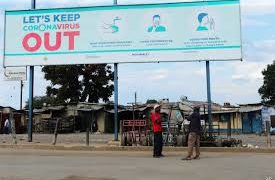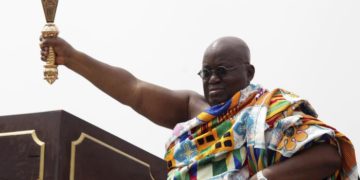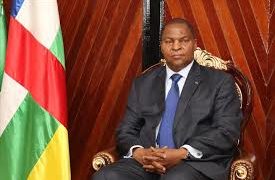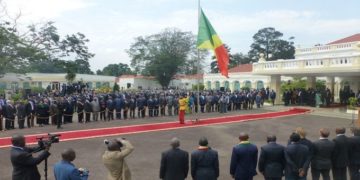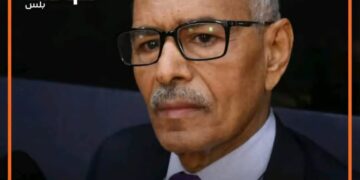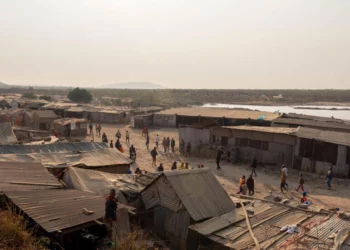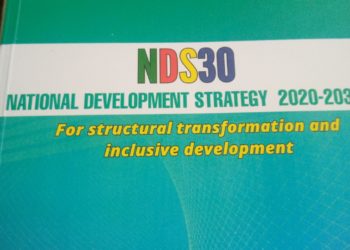Ways of improving inclusive finance in the country has been the subject of a workshop to launch the updating of the paper on the National Strategy for Inclusive finance in Cameroon.
The objectives of the workshop that took place from the 10-11 November 2020 at the Yaounde Hilton hotel was to identify the main orientations of the 2021-2025 National Strategy on Inclusive Finance and agree with all stakeholders on the approach and responsibilities for updating the strategy paper and propose a first draft of the 2020-2025 National Strategy on Inclusive Finance.
As such for two days stakeholders drawn from the government, private sector, civil society, donor community, regulating and regional bodies discussed current issues and challenges of financial inclusion in general and the situation in Cameroon in particular as well as the main targets of the 2021-2025 National Strategy on Inclusive Finance.

Amongst other things the stakeholders were also brought together to agree on a shared vision of financial inclusion in Cameroon as well as draw up a draft of the 2021-2025 National Strategy on Inclusive Finance paper including an action plan, budget and monitoring and evaluation framework.
Opening the workshop the Minister of Finance, Louis Paul Motaze after presented the state of picture of financial exclusion in the country in general especially in the rural areas. He said efforts should be made to reduce the disparity of financial exclusion between the urban and rural area.w
The finance boss also highlighted the need for more people to have access to financing and financial services. He added that a firm financial inclusion will enable poor and vulnerable population to save, provide for their families and protect themselves against the risk of everyday life. “It is an ideal that enables, amongst other things, the ability to finance their activities and projects in order to substantially increase their income and actively participate in improving their living conditions” He emphasized
Speaking earlier on, the Resident Representative of the United Nations Development Program Jean Luc Stalon, describe the National Strategy on Inclusive Finance as a development opportunity” at a time when government is in the implementation of of its new National Development Plan for the period 2020-2030, considering the numerous challenges, particularly in the areas of health, energy, housing, education, poverty reduction and social inclusion, Cameroon could benefit from the development of new tools to strengthen and diversify its financial system in order to meet the expectation of its population, the National Strategy on Inclusive Finance constitute an opportunity to contribute to the advent of an emerging Cameroon”
As Cameroon seeks to be an emergent country come 2035, access to finance and financial services is very imperative. According to the Director General of the Department of Treasury and Financial Cooperation at the Ministry of Finance Moh Sylvester, there is no way the fight against poverty can be effective without financial inclusion. As such the National Strategy on Inclusive Finance is an opportunity to promote financial inclusion. “People should not just create bank account but should also use them” Moh Sylvester added.
At a time when Cameroon is faced with challenges including : poverty, unemployment, inequalities and social exclusion insecurity perpetuated in particular by the Boko Haram sect in the Far North and armed groups in the North- West and South-West regions resulting to close down of financial institutions in these regions, the negative impact on productivity and overall performance of enterprises by COVID 19 health crisis, the high rate of financial exclusion in rural areas, there is the need to look for news ways to improve access to finance and financial services. The National Strategy on Inclusive Finance is expected to provide solution to this situation.
It is Government to put in place a National Strategy for Inclusive Finance .In implementation of the 2010-2020 Growth and Employment Strategy Paper (GESP), the policy for financial inclusion was formalized through the National Strategy for Inclusive Finance formulated 2014 with the technical support of the United Nations Development Program
Government went further to create the Support Program to the National Strategy for Inclusive Finance. The role of the program is to facilitate access to banking loans for SMEs. It is Cameroon’s government solution to remove the barriers for the funding of companies by classic banks in Cameroon.
Financial inclusion is a fundamental issue for governments and policy makers around the world. It is estimated that less than 20℅ of households in Africa have access to formal financial services. The low level of financial inclusion is a barrier to socioeconomic development, inequalities and poverty alleviation.
Conversely, strong financial inclusion promotes economic, monetary and financial stability by making households savings and investment decisions more efficient, enhancing the performance of monetary policy instruments and facilitating the functioning of the economy.


